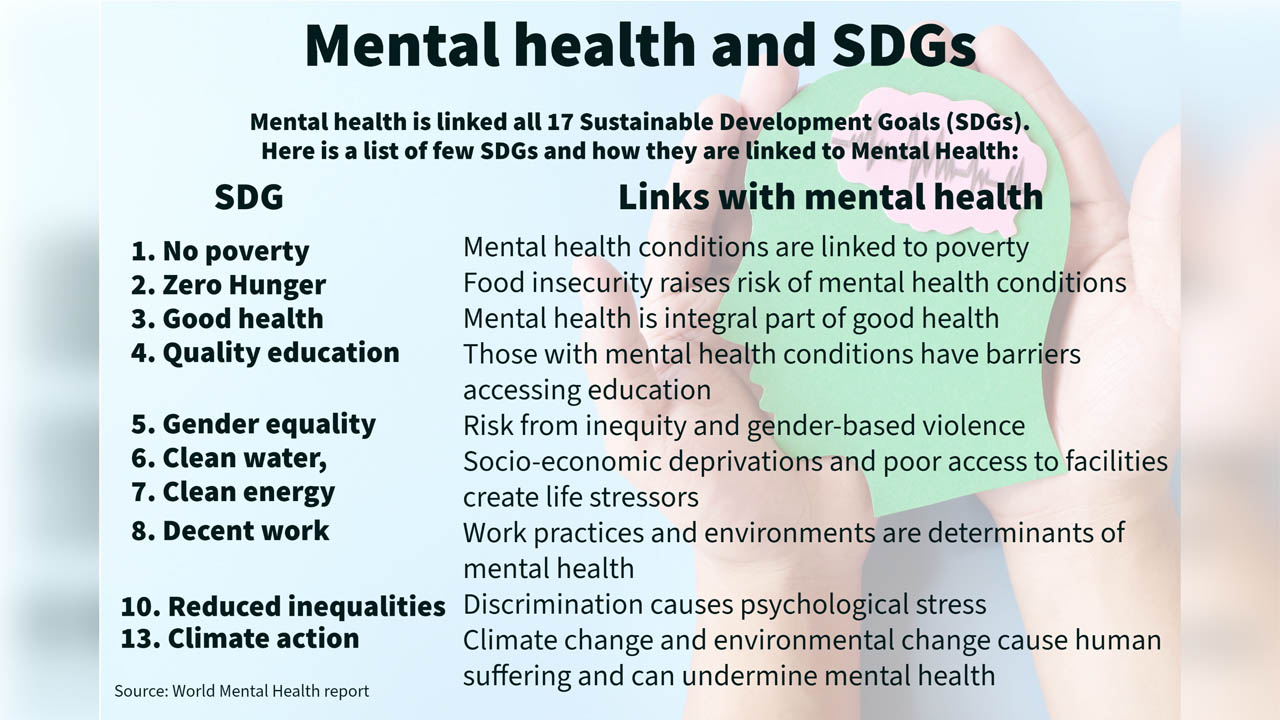Sustainability Today: High time mental health is made a priority
 CREDIT: FANSHAWE SUSTAINABILITY
CREDIT: FANSHAWE SUSTAINABILITYAccording to the World Mental Health Report (2022), about one in eight people have a mental health condition and one in every six cases of years-lived-with-disability is of a mental disorder.
The key to a healthy life is not only physical well-being; mental well-being is also crucial and equally important. Mental health is affected by a variety of factors but is often overlooked. The elephant in the room is rarely addressed. There are many reasons behind this willful ignorance: stigma; access to mental health care; fear of discrimination; socio-economic and political factors; mental health awareness; lack of services and more.
Believe it or not, mental health conditions are very common. According to the World Mental Health Report (2022), about one in eight people have a mental health condition and one in every six cases of years-lived-with-disability is of a mental disorder. Anxiety and depression are the most common mental health conditions. The Comprehensive Mental Health Action Plan report states that “depression alone accounts for 4.3 per cent of the global burden of disease and is among the largest single causes of disability worldwide (11 per cent of all years-livedwith- disability), particularly for women.” — the numbers call for action and this is one reason why mental health is outlined in the Sustainable Development Goals.
Mental health infrastructure, resources and workforce are also underfunded, especially in low-income countries, compounding the issue, with great economic and social costs. It is estimated that between 2011 and 2030, the impact of mental disorders in terms of economic output will amount to $16.3 (USD) trillion. The Global Mental Health Atlas (2020) reports that annual median government expenditure per capita on mental health was just $ 7.49 (USD) and the government expenditure on mental health was just 2.1 per cent of the overall health expenditure. Although high income countries like Canada have better mental-health infrastructure, the scenario in low-income countries is appalling. Countries are bogged with issues from lack or absence of mental health services to availability of psychotropic drugs. According to the Comprehensive Mental Health Action Plan, in low and middle-income countries, 76 per cent to 85 per cent of those with severe mental disorders receive no treatment and “only 36 per cent of people in low-income countries are covered by mental health legislation,” the figure for high-income countries is 92 per cent.
One of the determining factors in accessing the service is the workforce. In 2020, globally, the median number of mental health workers per 100,000 population was 13, an improvement from nine in 2017 — this number needs to be higher, and shows disparity across the globe: “The median number of mental-health workers was 40 times higher in the European Region (44.8 mental health workers per 100,000 population) than in the African Region (1.6).”
The pandemic played a large role in affecting mental health. Mental Health Commission of Canada’s Lockdown Life Headstrong Youth Survey says that “48 per cent of respondents reported feeling isolated or lonely” and 17 per cent didn’t know where to look for help.
The issue of mental health is universal; around the globe there have been efforts to deal with it in the form of promotion and prevention strategies, tackling socio-economic factors and treatment and recovery methods. We must keep in mind that mental health conditions can occur in anyone, anywhere and at any time. If left untreated, they can have wider consequences. We need to develop empathy to understand the issue and be aware about the resources. The Dalai Lama has said that “the purpose of our lives is to be happy,” and to achieve that we need a sustainable world, and that world can only be manifested if we all are healthy— both physically and mentally.
Resources at Fanshawe:
- fsu.ca/mental-health
- Counselling services: counselling@fanshawec.ca
- Oct. 13: International Day for Natural Disaster Reduction
- Oct. 14: International E-waste Day
- Oct. 21: SDGs Lab















